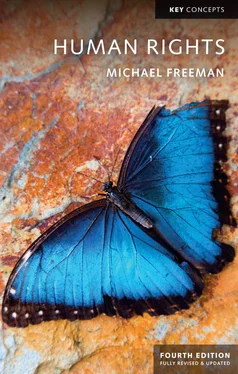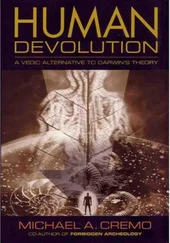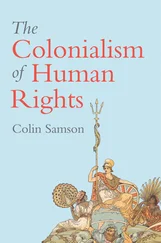On 6 March 2011, in the city of Daraa, some schoolboys scrawled anti-government graffiti on a wall. They were arrested and reportedly tortured. Protesters demanded the boys’ release. The security forces responded with live ammunition, killing four. The protests escalated. The government released the boys. Further clashes between security forces and protesters took place with many more deaths. The protests spread to other Syrian cities.
Most Syrians are Sunni Muslim Arabs. Kurds comprise the largest ethnic minority. The political elite are mainly Alawites, a Shi’a Muslim sect. The regime has generally been supported by the religious minorities and the Sunni business class and opposed by secular liberals, most Sunnis and the Kurds.
As the conflict intensified, opposition demands turned from reform to revolution and the ouster of President Assad. Some called for armed resistance, others for non-violent protest; some pleaded for solidarity among all opponents of the regime, others emphasized religious or ethnic allegiances. The opposition consisted of secular liberals, defecting army officers, moderate Sunni, Kurds, and Sunni jihadis (religious extremists), some linked to Al-Qaeda or Islamic State (ISIS). At first the opposition pushed the regime forces back, but, as Iran, Hezbollah (Iranian-backed Shi’a militia) and Russia came to its support, the regime gained the ascendancy. Iranian support for the regime led Saudi Arabia to support the Sunni opposition. The USA fought ISIS and provided limited support for anti-Assad groups; the Kurds fought Assad and ISIS; Turkey intervened to fight the Kurds and Assad; the secularists fought Assad and the jihadis; and the jihadis fought each other. The United Nations sought to provide humanitarian assistance and promote peace talks, but with limited effect. At the time of writing (4 May 2021), government forces were trying to reclaim the last rebel stronghold in Idlib province. More than 500,000 persons had been killed in the war and more than 12 million had become refugees (Kirby 2020).
Many people in many countries have been victims of state violence in recent times. During the rule of Idi Amin in Uganda from 1972 to 1978 more than 250,000 people were killed. The Khmer Rouge regime of Pol Pot in Cambodia is estimated to have killed between one-quarter and one-third of the entire population between 1975 and 1979. Hundreds of thousands of civilians were murdered by security forces in Iraq during the 1980s. In 1994 between 500,000 and 1,000,000 people were killed in the government-directed genocide in Rwanda. This list is far from complete. It does not include Latin America, Bosnia, Sudan, Sri Lanka, Myanmar, Yemen and elsewhere. It does not include atrocities committed by terrorist groups such as ISIS.
The concept of human rights provides a way of thinking about such events. As you read these words, there will probably be reports in the newspapers, on radio, television and the internet of similar cruelties and injustices. These are stories about the violation of human rights. These events are all too real, but ‘human rights’ is a concept . It is a device for thinking about the real and expressing our thoughts. If we are to understand the discourse of human rights, we must analyse this concept. It is, however, easier to respond with sympathetic emotion to stories like those of the Syrian people than to analyse our concepts so that they are clear, precise and coherent. The understanding of concepts is the goal of the philosophical discipline of conceptual analysis . The concept of ‘human rights’, however, presents a challenge to this discipline. Concepts are abstract, and conceptual analysis is an abstract discipline. It can seem remote from the experiences of human beings. The analysis of the concept of human rights, therefore, must be combined with a sympathetic understanding of the human experiences to which the concept refers.
If conceptual analysis is both necessary and problematic for understanding human rights, so is statistical analysis. The late political scientist, Rudolph Rummel, calculated that governments murdered at least 169,202,000 persons in the twentieth century. According to his estimates, more than 45,000,000 political murders occurred between 1945 and the early 1990s (Rummel 1994: chapters 1–2). These statistics are important, but they can easily numb our sense of the human suffering involved. Human-rights violations are facts that can sometimes be best expressed in terms of numbers, but there is an uneasy relationship between our knowledge of the numbers and our understanding of what they mean.
We do not need the concept of ‘human rights’ to know and to say that these things are wrong. We do, however, need a reason to oppose them. If reality violates human rights, why should we take the side of human rights, and not that of reality? How do we know that there are any human rights? In a famous passage of his History of the Peloponnesian War , the Greek historian, Thucydides, relates a dialogue between the Athenians and the Melians, whom the Athenians sought to incorporate into their empire. When the Melians objected, the Athenians declared that ‘the strong do what they have the power to do and the weak accept what they have to accept’ (Thucydides 1972: 402). Power is real; rights are illusions.
For most people, most of the time, the virtues that matter are personal and narrow in scope. In everyday life, ordinary kindness is more important than human rights. Ordinary people, however, are sometimes not permitted an everyday life. They may be subject to arbitrary arrests, unjust imprisonment, torture and murder by government. The concept of human rights becomes relevant to ordinary people when the relative security of everyday life is absent or snatched away. Human rights are most needed when they are most violated. Where they are generally well respected, we tend to take them for granted, and may consequently underestimate their importance.
The concept of human rights is to a considerable extent, though not wholly, legal . Although the concept is arguably ancient (see chapter two), it first appeared on the international agenda when the United Nations Charter declared in 1945 that the UN was determined ‘to reaffirm faith in fundamental human rights, in the dignity and worth of the human person, in the equal rights of men and women, and of nations large and small’. The Universal Declaration of Human Rights (UDHR) was adopted by the UN General Assembly on 10 December 1948. This declaration has had an enormous influence on international human-rights law and on the laws of many states with various political, economic and cultural characters. It was adopted in the aftermath of the victorious Allied war against Fascism, and in a spirit of idealism. The declaration was proclaimed to be ‘a common standard of achievement for all peoples and all nations’. All human beings, Article 1 affirms, ‘are born free and equal in dignity and rights’. Everyone, Article 2 states, ‘is entitled to all the rights and freedoms set forth in this Declaration without discrimination of any kind, such as race, colour, sex, language, religion, political or other opinion, national or social origin, property, birth or other status’.
There is obviously a wide gap between the promises of the UDHR and the real world of human-rights violations. In so far as we sympathize with the victims, we may criticize the UN and its member states for failing to keep their promises. However, we cannot understand the gap between human-rights ideals and the real world of human-rights violations by sympathy or by legal analysis. This requires investigation by the various social sciences of the causes of political oppression. The UN introduced the concept of human rights into international law and politics. The field of international politics is, however, dominated by states and other powerful actors (such as multinational corporations) that have priorities other than human rights. It is a leading feature of the human-rights field that the governments of the world proclaim human rights but have a highly variable record when it comes to implementing them. We must understand why this is so.
Читать дальше












